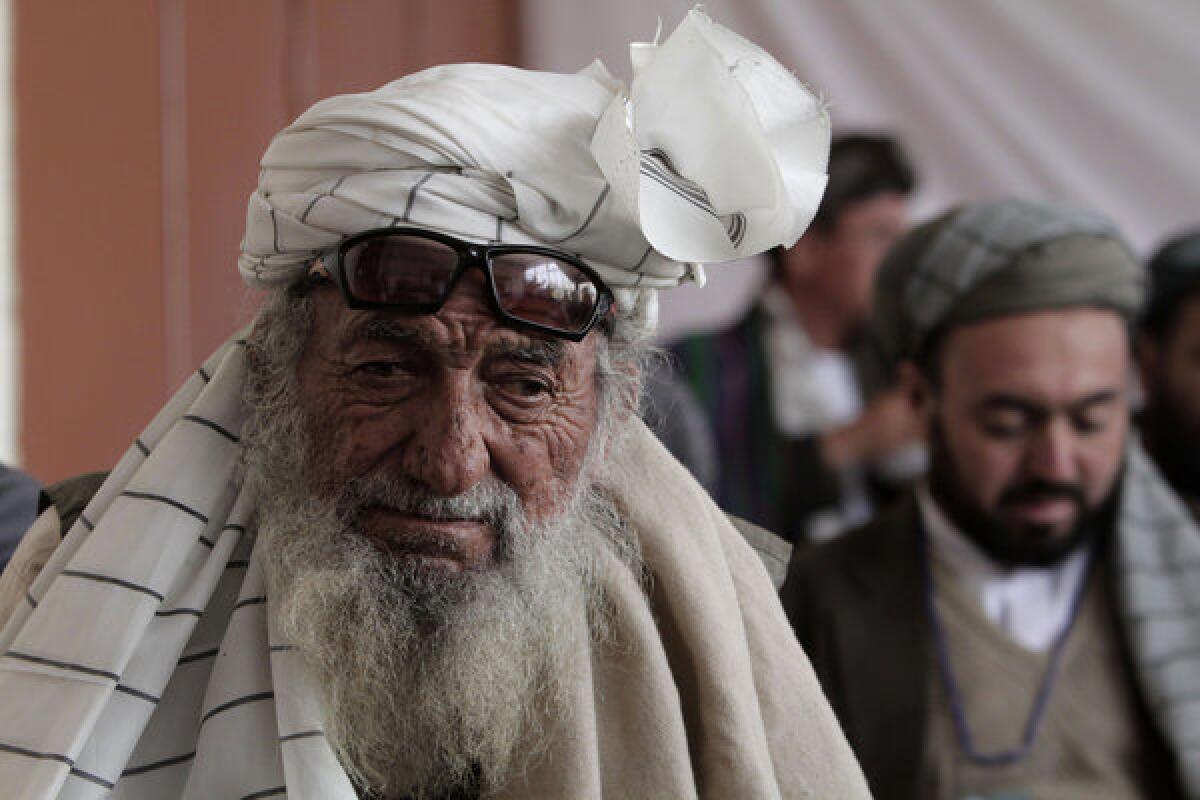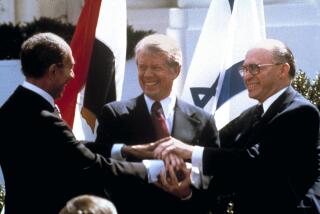Despite U.S. pressure, Karzai sticks by plan to delay signing pact

KABUL, Afghanistan -- Afghanistan on Friday brushed aside an end-of-the-year U.S. deadline for signing a 10-year security pact between the two nations that would continue U.S. military and reconstruction aid after combat troops withdraw at the end of 2014.
The spokesman for President Hamid Karzai, who stunned U.S. officials and many Afghans in a speech Thursday by saying the Afghan government would not sign the agreement until next spring, reiterated Friday that his nation wanted to wait. The U.S. had said in response to Karzai’s speech that the security agreement must be signed by year’s end to allow for complex post-2014 logistics and planning.
“We have no deadline except what the president said yesterday in his speech,” Karzai’s spokesman, Aimal Faizi, told The Times in a text message Friday night.
U.S. Secretary of State John F. Kerry announced Wednesday that Karzai had agreed to the text of the Bilateral Security Agreement, which defines the partnership between the two countries for a decade after 2014. U.S. officials thought the deal would be signed soon, with President Obama writing in a letter to Karzai on Thursday that he anticipated “concluding this agreement promptly.”
But in his speech Thursday to an assembly of 2,700 Afghan dignitaries in Kabul, Karzai abruptly announced his intention to wait until after elections in April to select a new Afghan president. Karzai previously had said he would not sign the agreement unless it is approved by the assembly, a traditional gathering known as a loya jirga.
The deal must also be approved by Afghanistan’s parliament, which is expected to endorse it. Karzai told the loya jirga Thursday that the pact is crucial for Afghanistan’s security, but said he was resisting pressure by the U.S. for a quick signature.
“We should wait and see and let the jirga work on the BSA,’’ Faizi said Friday, referring to the Bilateral Security Agreement. “
“Peace and security is what the people of Afghanistan want from the U.S.,” he added. “This has been a condition and official line from our side in the negotiation.”
The Reuters news agency quoted Faizi as saying of the U.S.: “They have set other deadlines also, so this is nothing new for us.”
When negotiations over the security pact opened a year ago, officials set a deadline for an agreement within 12 months.
On Thursday, State Department spokeswoman Jen Psaki said: “We need a timely conclusion of this in order to plan for any potential post-2014 presence, which means signing it by the end of the year. It’s neither practical nor possible for us to further delay because of the uncertainty it would create.”
The proposed agreement would allow deployment of U.S. military advisors to train and provide logistical support for Afghan security forces fighting a stubborn Taliban insurgency that controls much of the rural areas of the country.
The deal would also permit U.S. special operations forces to enter Afghan homes on counter-terrorism missions only “under extraordinary circumstances involving urgent risk of life and limb of U.S. nationals,” according to Obama’s letter.
If the accord is signed, the White House would determine the number of U.S. troops who will be sent to Afghanistan after 2014.
Karzai’s decision to delay signing for months was interpreted by some Afghan analysts as a ploy to extract concessions he was unable to obtain from the U.S. prior to agreeing to the text of the accord, which his office distributed to loya jirga delegates for debate. The delay would also keep Karzai in the political spotlight through the remaining months of his presidential term.
The assembly is expected to vote on the proposed agreement by Sunday.
ALSO:
Iranians express more optimism about nuclear talks
Ukraine bows to Russian pressure, suspends EU entry bid
Philippine typhoon survivors get a warm, even festive welcome
Twitter: @davidzucchino
More to Read
Sign up for Essential California
The most important California stories and recommendations in your inbox every morning.
You may occasionally receive promotional content from the Los Angeles Times.











